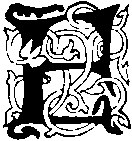



|
 ROM the house of Annas the enemies of Jesus led him away
bound to the house of Caiaphas, whom the Romans had
lately made high-priest. There all the rulers of the
Jews were called together, and they tried to find men
who would swear that they had heard Jesus say some
wicked thing. This would give the rulers an excuse for
putting Jesus to death. But they could find nothing.
Some men swore one thing, and some swore another; but
their words did not agree.
ROM the house of Annas the enemies of Jesus led him away
bound to the house of Caiaphas, whom the Romans had
lately made high-priest. There all the rulers of the
Jews were called together, and they tried to find men
who would swear that they had heard Jesus say some
wicked thing. This would give the rulers an excuse for
putting Jesus to death. But they could find nothing.
Some men swore one thing, and some swore another; but
their words did not agree.
Finally the high-priest stood up, and said to Jesus, who stood bound in the middle of the hall, "Have you nothing to say? What is it that these men are speaking against you?"
But Jesus stood silent, answering nothing. Then the high-priest spoke again, "Are you the Christ, the Son of God?"
And Jesus said, "I am; and the time shall come when you will see the Son of man sitting on the throne of power and coming in the clouds of heaven!"
These words made the high-priest very angry. He said to the rulers, "Do you hear these dreadful words? He says that he is the Son of God. What do you think of words like these?"
They all said, with one voice, "He deserves to be put to death!"
Then the servants of the high-priest and the soldiers that held Jesus began to mock him. They spat on him, and they covered his face, and struck him with their hands, and said, "If you are a prophet, tell who it is that is striking you!"
The rulers of the Jews and the priests and the scribes passed a vote that Jesus should be put to death. But the land of the Jews was then ruled by the Romans, and no man could be put to death unless the Roman governor commanded it. The Roman governor at that time was a man named Pontius Pilate, and he was then in the city. So all the rulers and a great crowd of people came to Pilate's castle, bringing with them Jesus, who was still bound with cords.
Up to this time Judas Iscariot, although he had betrayed Jesus, did not believe that he would be put to death. Perhaps he thought that Jesus would save himself from death, as he had saved others, by some wonderful work. But when he saw Jesus bound and beaten, and doing nothing to protect himself, and when he heard the rulers vote that Jesus should be put to death, Judas knew how wicked was the deed that he had wrought. He brought back the thirty pieces of silver that had been given to him as the reward for betraying his Lord, and he said, "I have sinned in betraying one who has done no wrong!"
![[Illustration]](http://www.gatewaytotheclassics.com/gold/books/hurlbut/bible/hurlbut_bible_zpage651.gif)
Judas returns the silver to the priests |
But they answered him, "What is that to us? You look after that!"
When Judas saw that they would not take back the money and let Jesus go free, he carried the thirty pieces to the Temple, and threw them down on the floor. Then he went away and hanged himself. And thus the traitor died.
After that the rulers scarcely knew what to do with the money. They said, "We cannot put it into the treasury of the Temple, because it is the price paid for a man's blood."
And when they had talked together, they used it in buying a piece of ground called "the potter's field." This they set apart as a place for burying strangers who died in the city and had no friends. But every one in Jerusalem spoke of that place as "The Field of Blood."
It was very early in the morning when the rulers of the Jews brought Jesus to Pilate. They would not go into Pilate's hall, because Pilate was not of their nation; and Pilate came out to them, and asked them, "What charge do you bring against this man?"
They answered, "If he were not an evil-doer, we would not have brought him to you."
Pilate did not wish to be troubled, and he said, "Take him away, and judge him by your own law!"
The Jews said to Pilate, "We are not allowed to put any man to death, and we have brought him to you. We have found this man teaching evil, and telling men not to pay taxes to the Emperor Caesar, and saying that he himself is Christ, a king."
Then Pilate went into his court-room, and sent for Jesus; and when he looked at Jesus, he said, "Are you the King of the Jews? Your own people have brought you to me. What have you done?"
![[Illustration]](http://www.gatewaytotheclassics.com/gold/books/hurlbut/bible/hurlbut_bible_zpage647.gif)
Jesus brought before Pilate |
Jesus said to him, "My kingdom is not of this world. If it were of this world, then those who serve me would fight to save me from my enemies. But now my kingdom is not here."
Pilate said, "Are you a king, then?"
Jesus answered him, "You have spoken it. I am a king. For this was I born, and for this I came into the world, that I might speak the truth of God to men."
"Truth," said Pilate, "What is truth?"
Then, without waiting for an answer, Pilate went out to the rulers and the crowd, and said, "I find no evil in this man."